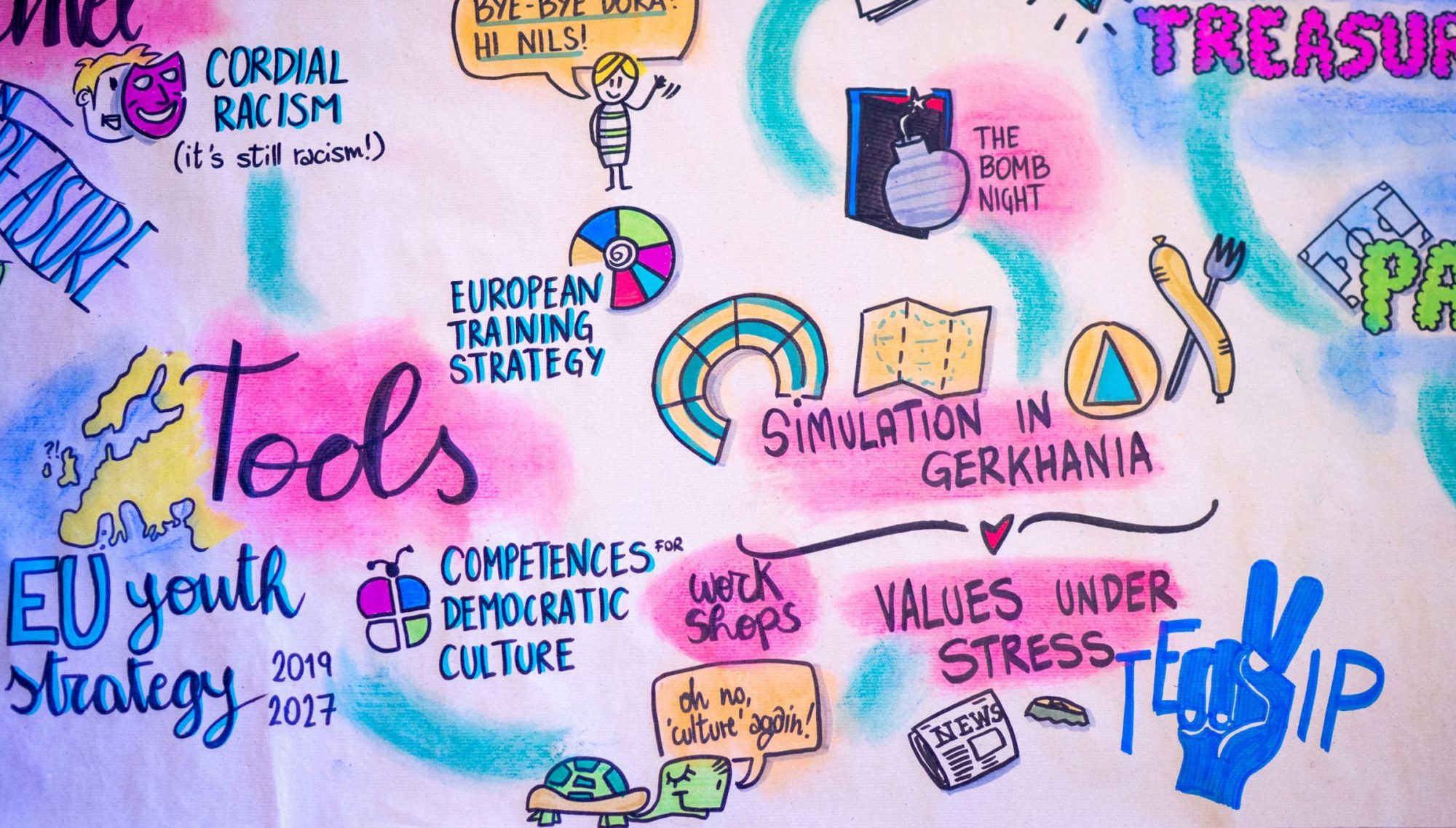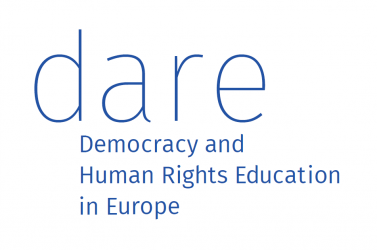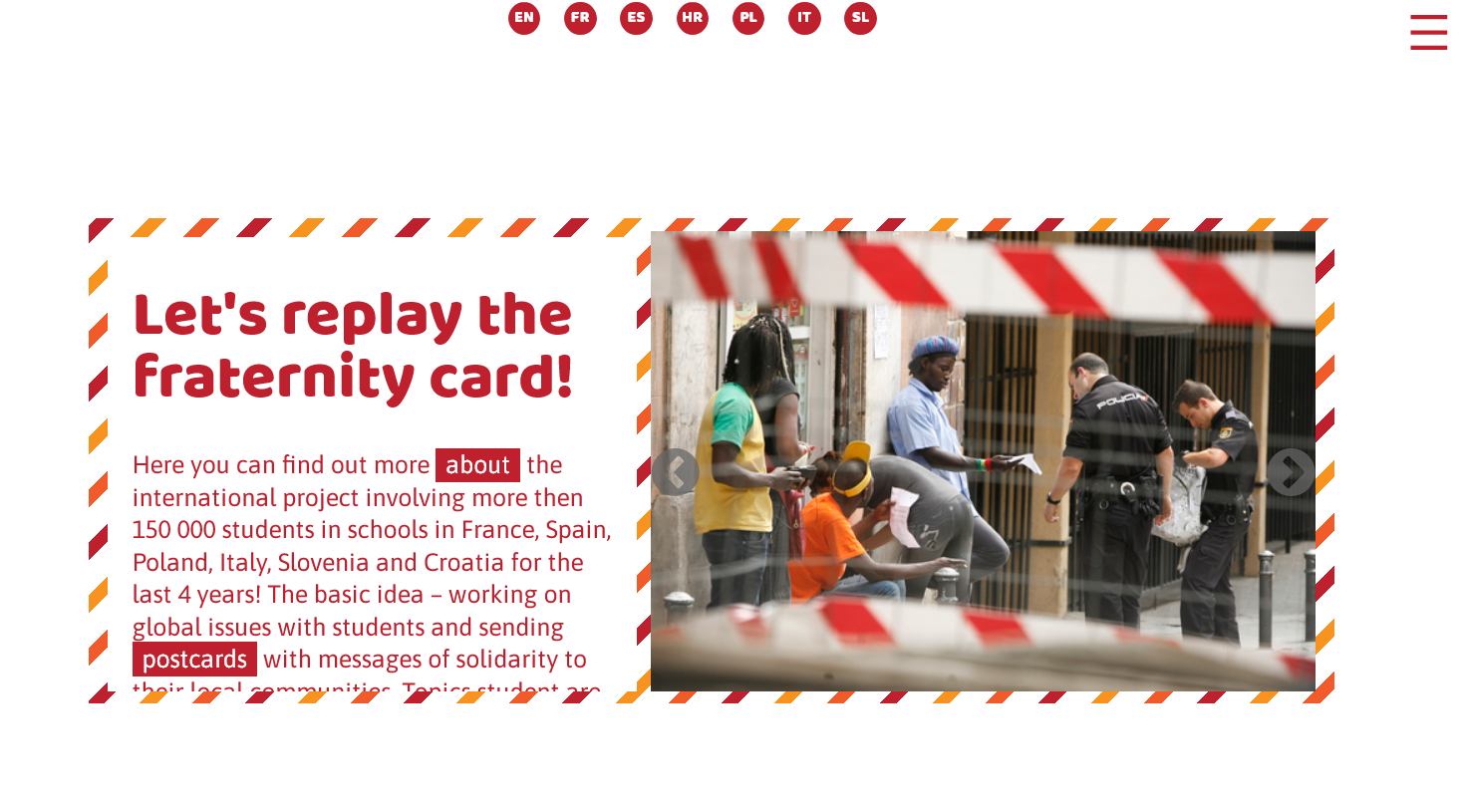The project ‘Building European Solidarity Today’ (BEST), co-financed by the Erasmus+ program, has successfully closed its third European edition (2020-2022). Coordinated by Center for Peace Studies (Croatia), BEST has also been implemented in France (by La Ligue de l’Enseignement), by DARE member Cives Foundation in Spain, Poland (by School with Class Foundation), Italy (by Arci) and Slovenia (by Humanitas).
The initiative was initially imagined and designed in 2002 by the Ligue de l’Enseignement in France to deal with the rise of racism and exclusion, highlighting the importance of the coexistence of opinions, religions and social groups. The heart of the project is a participative action in which young people, students and adults send some “fraternity cards” (postcards) to other people from different communities, following the principle of the “bottle in the sea”.
Participants were therefore trained to critical thinking and the analysis of thematic photos (https://www.fraternity-card.eu/postcards) to be able to write messages of solidarity. Since its origins, the implementation of the project has been based on a pedagogical toolkit (https://www.fraternity-card.eu/en/4theteachers) aiming to support teachers and educators in implementing the activities. This toolkit was designed by la Ligue de l’Enseignement with the participation and inputs of all project partners. It includes examples of image reading, photography and writing workshops as well as resources to enrich and complement the activities.
The project activities included postcards, community actions, exhibitions, workshops, videos, and campaigns raised awareness about solidarity. They built bridges between very diverse people (young, old, politicians, public administrators, influencers, teachers, schools, parents, refugees, prisoners, older people, doctors and medical staff, famous football clubs, people in need, etc.).
The project’s success can also be seen in numbers. In total, during the project implementation in the school years 2020/22, 2021/2022 and partly in the school year 2022/23:
- 71522 school students were trained in critical thinking, photo analyses and creative writing workshops resulting in starting a dialogue with citizens through messages of solidarity.
- 248728 postcards with messages of fraternity and solidarity were sent to the general population with a request to answer.
- 54 student-led local community actions were implemented local community actions. This part of the project was strongly impacted by the COVID restrictions in 2020 and 2021.
- 82 groups of adult learners were involved in testing the methodology.
- 2159 teachers and educators were capacitated in education for equality in diversity and global education and directly involved in the activities.
Advocating for Global Civic Education
One of the main goals of the project has also been to advocate for giving global education the right place in the educational system, in coherence with target 4.7 of SDGs, in order to enhance the acquisition of social and civic competences, fostering knowledge, understanding and ownership of values and fundamental rights. Therefore one of the final products include the White Paper “Reflections and Proposals on the Role of Formal, Informal and Non-formal Education in Promoting Global Citizenship Education in the EU” that was presented and discussed with representatives of European institutions and European civil society members in the project’s final Conference that took place on November 30th in Brussels.


